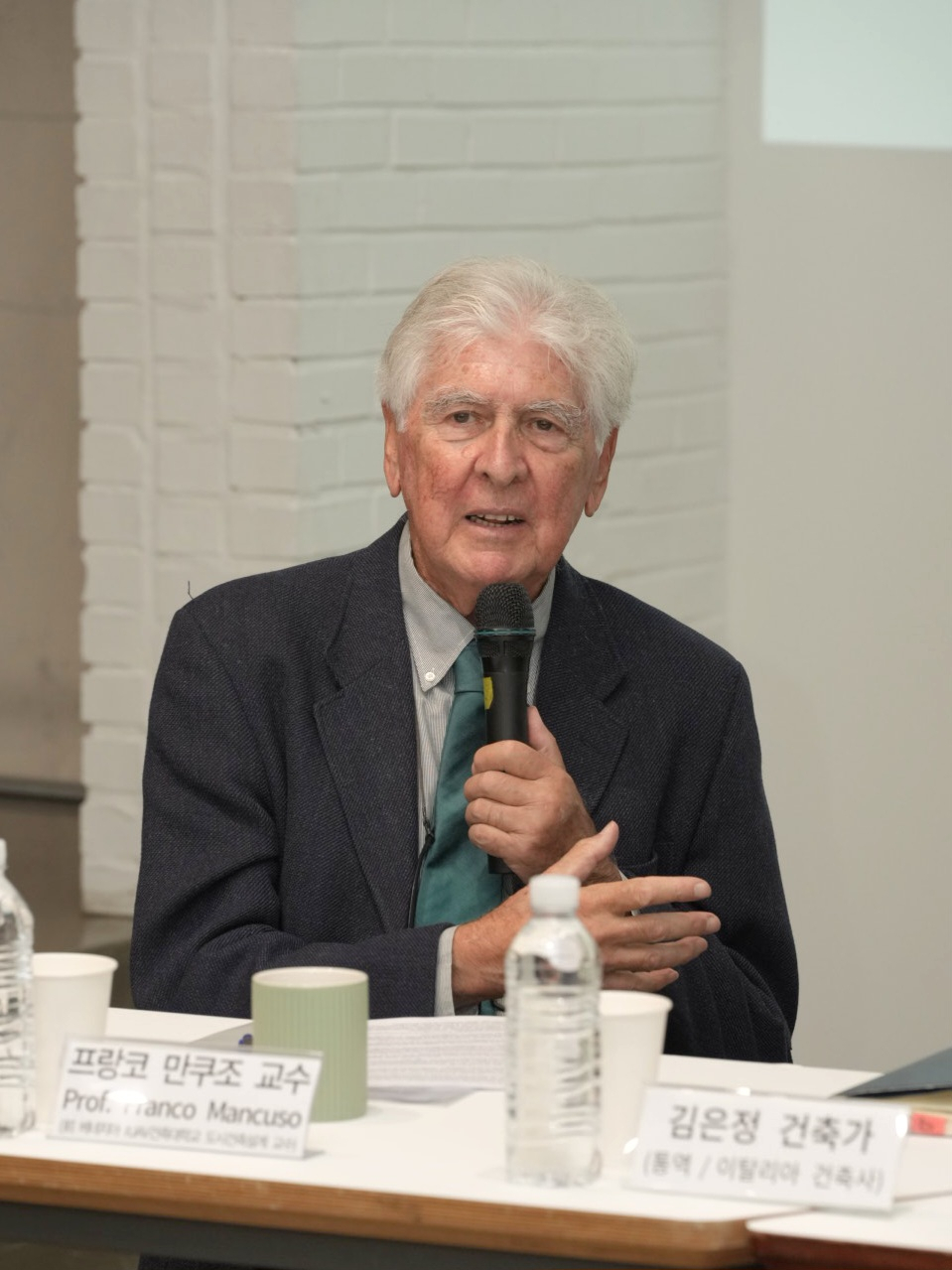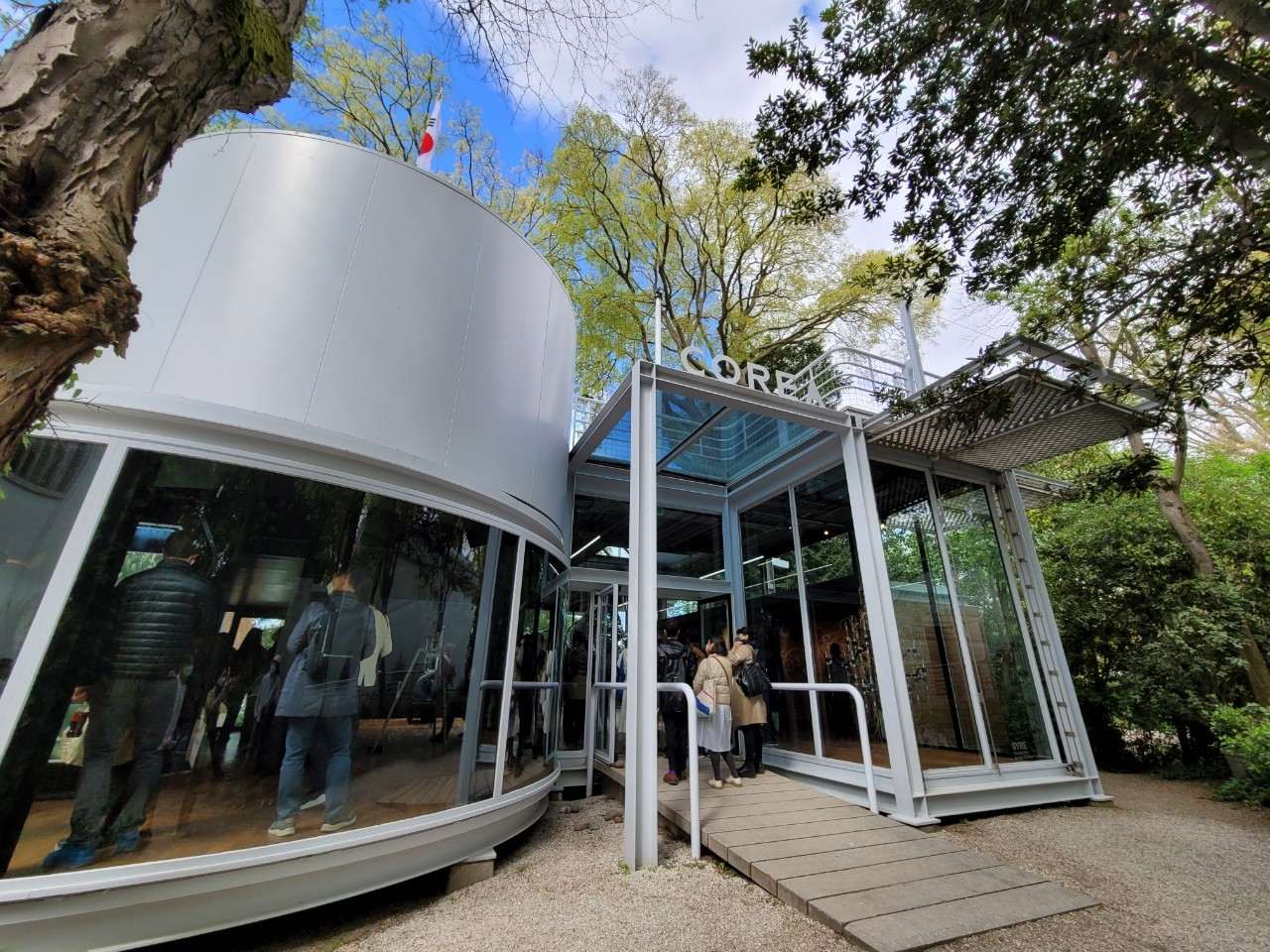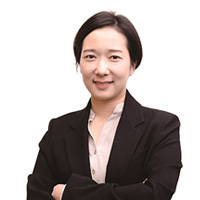Italian architect Franco Mancuso donates archives on Korean Pavilion at Venice Biennale
By Park YunaPublished : Oct. 26, 2023 - 22:51

Italian architect Franco Mancuso has donated nearly 4,000 documents related to the Korean Pavilion of the Venice Biennale to the Arts Council Korea (Arko).
The architect had gathered the documents as he undertook the design of the pavilion together with Korean architect Kim Seok-chul, who has since died.
Arko, the commissioner of the Korean pavilion, runs the 26th national pavilion in Giardini located on the eastern edge of Venice. Opened in 1995 as the last national pavilion at the biennale, it will mark its 30th anniversary in 2025.
“Kim and I had gone through many discussions to process the design since there were so many plants and tree roots,” Mancuso recalled at a roundtable discussion in Italian, interpreted in Korean for the audience. His eyes were wet before starting his speech, reminiscing.
Arko will host a commemorative exhibition next year to celebrate the 30th anniversary of the pavilion, advancing the celebration by a year to have it take place during the Venice Biennale 2024. The commemorative exhibitions in Venice and Seoul will feature the archives donated by the Italian architect. Categorizing the materials is already underway, according to Arko.
The Venice Biennale hosts art and architecture exhibitions in alternating years. The world’s oldest and most prestigious art biennale will open next year with the theme of “Stranieri Ovunque -- Foreigners Everywhere.”

“The Korean Pavilion was the last pavilion. It was possible thanks to a request by Paik Nam-june who was invited to curate the German Pavilion in 1993 and won the Golden Lion. We have not had a chance to look back on the history of the Korean Pavilion since then,” said Arts Council Chair Choung Byoung-gug, explaining the reason for Thursday's discussion.
The discussion was moderated by Chun Jin-young, an architecture professor at Myongji University; and joined by Kim Kyong-soo, an honorary professor of architecture at Myongji University; Kim Sung-hong, an architecture professor at the University of Seoul; Park Seong-tae, founding director of the Junglim Foundation and artistic director of the Korean Pavilion in 2018; architect Cho Min-suk, artistic director of the Korean Pavilion in 2014 and winner of the Golden Lion; and Chung Da-hyoung, curator of the National Museum of Modern and Contemporary Art, Korea.
Architect Ernesta Serena, the spouse and partner of Mancuso, also joined the conversation, recalling how the Korean Pavilion was founded.
“It was permitted in 1994 to build the Korean Pavilion under the condition of preserving the trees surrounding the space,” she said, speaking through an interpreter.
Choung, who has pushed for an expansion of the Korean Pavilion since his inauguration early this year, following futile attempts over the past five years, said a design that would expand the space as much as possible has been completed.
The plan remains just an inch from realization, waiting for a signature from the mayor of Venice, Choung said. He flew to Venice in May to meet officials related to the matter, including Sebastiano Costalonga, the councilor for commerce in Venice who pledged to support the expansion of the Korean Pavilion, Choung said.
“Sebastiano Costalonga, the councilor for commerce in Venice, was supposed to visit Seoul in October, but the plan has been delayed. We will continue to put our full efforts to accomplish the task,” said Choung.
The annual operating budget of the pavilion is 1 billion won ($736,000), according to Arko.



















![[Today’s K-pop] Treasure to publish magazine for debut anniversary](http://res.heraldm.com/phpwas/restmb_idxmake.php?idx=642&simg=/content/image/2024/07/26/20240726050551_0.jpg&u=)